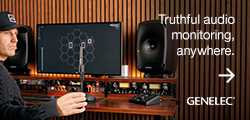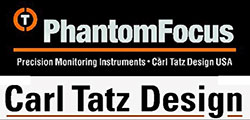Deep Blue had been going for about five years at the time I arrived.

This follows the criteria set up by [UK education body] Edexcel. They probably have 1,000 modules covering the whole gamut of education at different levels. Out of those – some of which will be for building and hairdressing – there are probably 20 that are music technology based. These were put together by Edexcel in consultation with Plasa and one of the theatre steering groups. The problem was that they were a little bit old fashioned by this time, and they had very little to do with live sound.
When Simon [Honywill] started work on the course, he knew what he wanted to do but we had to find Edexcel modules that allowed us to deliver. By reinterpreting certain things, we shoe-horned the live sound aspect into the established framework. We ran like that for a couple of years.
Deep Blue Sound was set up as a further education (aged 16-18) school but we were now talking about the next level of higher education (18-plus) – university level for HNC or HND. While this was going on, higher education courses were being developed for music technology and studio engineering.
We could have developed this by working further with Edexcel, but that was proving a little bit restrictive so we chose to create our own foundation degree in conjunction with the University of Plymouth. So the awarding body is now the University of Plymouth rather than Edexcel – they oversee it and maintain its quality. That involved creating the new course [with Honywill now touring] and going through the approval process with the University.
While that was going on, the studio and music technology courses were also converted. So now we have three, two-year foundation degree courses. The foundation degree emphasises very strongly real-world applications. These can offer a basis for further academic study but if students want to get a job, they should be reasonably employable. For instance, if something isn’t working at the live theatre we don’t call one of the school technicians, we get a student to sort it out. We do have technicians but they operate at a higher level. Day-to-day stuff is handled by the students, just as they would have to manage in the real world.
The current status is that there is an extensive further education – two-year BTEC operation – that feeds into three higher education courses covering music technology, studio recording and live sound. The further education tends to be local students but the higher education is advertised nationally and tends to draw students from further afield.
Reasons to teach
Why do you educate people? You don’t only educate to get them a job…
There are a number of reasons. You educate people to make them better members of society. I would say that an educated member of society – no matter what that education – is a better member of society.
In higher education, you are teaching decision-making skills, team-leading skills, transferrable skills that are valuable in a variety of situations. Someone trained as an officer in the army would probably make a very good stage manager or project manager for a building company.
Then there are industry-specific skills that break down into two areas. One is the understanding of basic concepts – the physics of sound, psychology of sound, electronics and so on. And there are specifics – learning how a particular desk or particular piece of software is operated. We do teach these, but I don’t regard it as the most important thing. There is no point in teaching someone all about a Yamaha desk only to have them stumped the first time they meet a DiGiCo desk. What we try to do is build concepts so that, wherever they end up in the world and whatever is thrown at them, they are able to cope.
You’re making people fit for life, and fit for employment. Some may not be certain what they actually want to do. Hopefully, by the end of two years, you have helped them gain a better idea of what they want to do with their life. And the people who do want to be part of the industry have a better idea of the reality of the situation they are going to faced with. And they’re then in a position to go out and find the job that suits them best.
My organisation needs to be able to navigate the needs of the industry. That is why we shy away from turning out people who are trained for one particular job – we need to make people employable. I think a raft of general skills, and the ability to handle people and situations, is more important than being very skilled on Pro Tools version whatever.
Learning to learn
The dBs Music model relies very heavily on the Moodle IT system. We don’t use any written submissions – students log into our network and can complete assignments, check their timetable and monitor their progress.
We’re not the only people to be doing this, but we have taken it to a very high level. I think it was developed in Canada, but it is an open-source system that suits our needs well.
Because of the nature of what we teach we deal with a lot of musicians, and that statistically means that we have a lot of left-handed people, people with dyslexia and people with learning difficulties. These things go along with talent in a musical direction, so a system using a computer interface rather than pen and paper helps people to deal with the academic aspects of the courses.
Industry needs
All I can do is talk to people and make sure that what we do is the best possible fit for what they need. That dialogue is the most important thing. My job as an administrator means that I have to try to keep us reactive to requirements and technologies, and that the syllabi are kept as relevant as possible.
One of the things I am working on at the moment is work placements. We are sending out feelers to a number of companies and we’ve had very positive responses from many of them. Basically, they know they need people but they don’t need people all of the time. And if they can cherry-pick from the people they see during a year, that’s got to be good for them.
Another thing we need to be doing is looking at other bodies that are operating within the educational area, and keeping links with them.
We also keep an eye on what is going on elsewhere in the world. In the UK there is nobody doing quite what we are doing. I’m not saying this is a good or bad thing, but it is a fact. We are probably less scientific than other courses, although some other courses do involve an element of live sound – they offer a foundation in science, where we offer a foundation in arts.
I’ve been in the industry 30 years and I’m still learning – new desks, new software, new microphones that require different techniques – and I love that. You have to have the ability to keep developing and looking at different ways of doing things.
Jim Parsons is a Course Leader at dBs Music.









